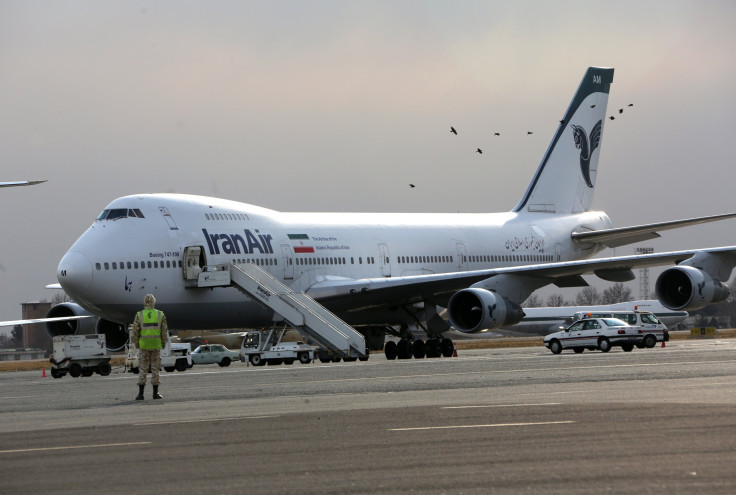Boeing-Iran Deal: US House Lawmakers Approve Measures To Block Sale Of Jets To Tehran

The Republican-led U.S. House on Thursday approved two amendments to a financial services spending bill aimed at blocking Boeing's planned sale of over 100 aircraft to Iran’s national airline Iran Air. The $25 billion deal, announced last month, has come under increasing scrutiny in Washington, where lawmakers have expressed fears that it may violate sanctions still in place.
“I am extremely concerned that by relaxing the rules, the Obama administration has allowed U.S. companies to be complicit in weaponizing the Iranian regime,” Representative Bill Huizenga, chairman of the Monetary Policy and Trade Subcommittee, said in a statement released Wednesday.
One of the amendments approved Thursday bars the Office of Foreign Assets Control from using funds to authorize a license necessary to allow planes to be sold to Iran, while the other one seeks to ensure that Iran does not receive loans from American financial institutions to buy military-fungible planes.
The move comes just a month after a historic agreement between Boeing and Iran Air. While Iran says the deal to purchase 80 planes and lease another 29 is needed to replace the country’s ageing fleet of passenger jets, critics — including several U.S. lawmakers — have aired concerns that the new planes may be used by Iran’s Revolutionary Guards, which remains under sanctions.
“Boeing is signing a deal with an Iranian aviation company and an industry complicit in the regime’s weapons proliferation and destabilizing adventurism,” Mark Dubowitz, executive director of the Washington-based think tank Foundation for Defense of Democracies, said in a testimony submitted to the Financial Services Committee. “Boeing and those banking this deal face a due diligence nightmare. They cannot prevent their planes from being used by Iran‘s Islamic Revolutionary Guard Corps, for example, for deadly airlifts to Syria’s Bashar al-Assad and Lebanese Hezbollah.”
The approval of the amendments just a week before the first anniversary of the landmark nuclear deal between Iran and six world powers is likely to give further credence to those in the Shiite nation who have voiced concerns that the U.S. is not doing enough to fulfill its end of the bargain. Even now, banks in the U.S. are prohibited from doing business with Iran and foreign lenders remain barred from carrying out dollar-based transactions with the country through American banks.
As a result, even as Iran's President Hassan Rouhani — widely perceived as a moderate — leads an effort to thaw ties with the West, his critics have begun attacking not only the nuclear deal, but also his economic agenda and social reform overtures.
However, given that it has, in recent weeks, voiced its support for the Boeing-Iran Air deal, the Obama-administration is likely to veto any legislation that undermines the nuclear deal. As things stand now, deliveries of the purchased jets are scheduled to start in 2017.
© Copyright IBTimes 2024. All rights reserved.






















